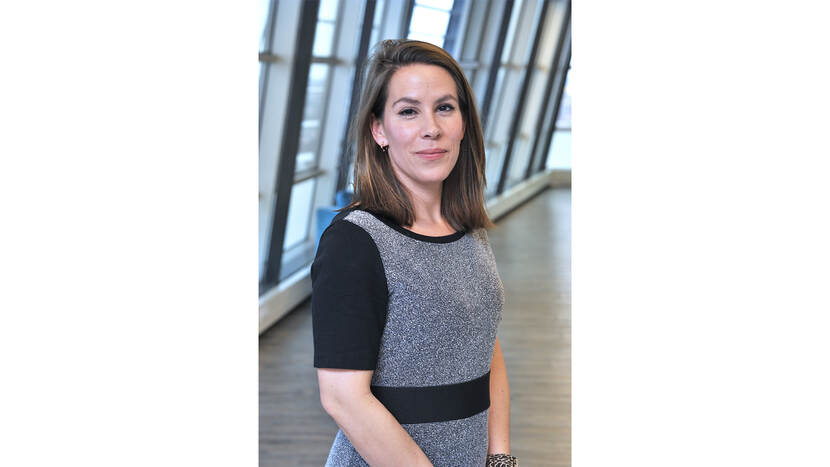The MEB’s Corporate Communication department is responsible for managing online channels, content creation, communication advice and media relations. Dony Potasse is a senior communication advisor and spokesperson in the Corporate Communication department.
In the second half of 2022, the pandemic became less of a focus in our communication work. But it didn’t disappear completely. Dony says COVID-19 is still taking up a lot of time. “In particular, the approval of the first Covid pill and the bivalent Covid vaccines adapted to the Omicron subvariants attracted a great deal of media attention in September. Since the Covid pandemic began, the media have not been shy about contacting the MEB. We’ve often been in the spotlight during the pandemic due to our role in assessing the vaccines. We’ve had intensive contact with many journalists, answering questions and making media appearances. This strengthened our relationships with many journalists. That’s valuable, because it helps us reach the general public. That enables us to share reliable information and give correct explanations, for example on the efficacy of and adverse reactions to vaccines and medicines. Because people’s need for information is high, which is only logical.”
The need to share reliable information continued in 2022 due to the rise in disinformation. “It’s a growing problem. Combating disinformation about medicines and vaccines is a big challenge for us. We start by sharing information ourselves, then where necessary we also combat disinformation with reliable information. We keep an eye on disinformation through daily media monitoring. We want to pay even more attention to it next year, because unfortunately disinformation is timeless.”
The number of medicine shortages increased in 2022. “The critical shortage of an eye medicine had a particularly big impact,” says Dony. “For the small group of people who use it, the shortage could have lasting consequences. Medicine shortages are a challenging subject. The trickiest part is that the role of the MEB is limited, but it could have an impact on trust in medicines.”
In spite of the medicine shortages and increase in disinformation, trust in medicines and vaccines is high. This was shown in a study conducted in 2022 by the research agency Nivel on behalf of the MEB. “We didn’t know what to expect,” says Dony. “But we were very happy to find that trust in medicines is still high, and that the Covid vaccines also received satisfactory scores. This will have an influence on the appropriate use of medicines.”
With a score of 8.2, general trust in medicines has risen since 2018. Vaccines received a favourable score of 7.8. The score for Covid vaccines was lower, at 6.8. “We hope that good communication and transparency have contributed to that level of trust,” says Dony. “Trust in medicines and vaccines and the appropriate use of medicines are why we do what we do.”
Ultimately, everything we do is for patients. That’s why they had a prominent role on MEB Day. “Our annual MEB Day is the calling card of our organisation. It was great being able to see our stakeholders in person again, after two years. We’re proud of how this year’s MEB Day unfolded.”









